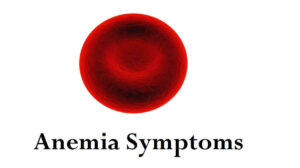
The dangers of high cholesterol can arise due to unhealthy habits that you may often do, such as eating fatty foods and rarely exercising. If this high cholesterol is not addressed, you will be at risk of serious health problems, such as heart attacks and strokes.
Cholesterol is a type of fatty substance found in the bloodstream. The body actually needs this substance in order for the organs in it to function properly. However, this amount of cholesterol should be kept to the right level.
If excessive, cholesterol can actually inhibit blood flow and cause various health disorders.
Dangers of High Cholesterol
Rising cholesterol levels in the blood can be influenced by a variety of factors, including rarely exercising, often eating foods with high saturated fat content, smo**king, overweight (obesity), and having diabetes.
Without proper treatment, high cholesterol levels in the blood will increase your risk of experiencing a number of health problems, such as:
Atherosclerosis
Atherosclerosis refers to the buildup of fats, cholesterol and other substances in and on the walls of the arteries. This condition can restrict blood flow throughout the body. Plaque can also rupture, triggering blood clots.
Atherosclerosis develops gradually. Mild atherosclerosis usually have no symptoms. Signs and symptoms of atherosclerosis usually will not appear until the arteries are narrowed or clogged so cannot supply enough blood to organs and tissues. Atherosclerosis is the cause of other heart problems such as coronary heart and stroke.
Heart Disease
High Cholesterol is one of Things that can cause heart disease. Inhibited heart blood flow can lead to a cut off of nutrient flow to the heart. Without blood flow, the heart muscle can experience death and cause a heart defect known as a heart attack.
Heart attacks usually cause complaints of left chest pain, shortness of breath, and cold sweats. If not treated appropriately, this disorder can be life-threatening to the sufferer.
Coronary Heart Disease
Coronary heart disease is one of the Dangers of High Cholesterol. Coronary heart disease is particularly susceptible to those with high cholesterol levels in their body. An overly high LDL builds up in the walls of the arteries and causes blockages that result in impaired blood supply to the heart.
Lack of blood flow to the heart will cause health problems such as angina pectoris and sudden cardiac arrest.
Stroke
The build-up of plaque in blood vessels not only occurs in the blood vessels of the heart, but can also occur in the blood vessels of other organs such as the blood vessels of the brain. If the blood vessels of the brain are clogged, then the blood flow of the brain can be inhibited.
High blood pressure

The next high cholesterol effect that is very likely to occur is the unstable blood pressure. Basically, blood circulation will run normally if nothing blocking the ‘pathway’.
High cholesterol levels can give rise to plaques that accumulate in blood vessels. This buildup then causes the blood stream cavity to narrow. The pressure on the blood will increase so that it can still flow to the destination organ. If left unchecked, this can trigger hypertension.
The American Heart Association defines hypertension as a condition in which blood is pushed with greater force constantly towards the body. This impulse will then make the heart have to pump even harder.
Peripheral Arteries
Peripheral vascular disease occurs due to the build-up of fat or bad cholesterol on the walls of arteries outside the heart and brain causing blood flow to be disrupted.
Diabetes
Diabetics generally have quite high LDL levels. If you do not adopt a healthy lifestyle, cholesterol coated in sugar over time will accumulate and clogs the walls of the arteries and aggravate the condition of diabetes.
Obesity
Obesity occurs when the body mass index reaches the number 30 or more. People who have cholesterol tend to have a greater risk of being obese.
People with obesity are also more likely to develop other risk factors for heart disease linked to high cholesterol. These diseases are like diabetes and high blood pressure.
Read also:
Eating Once A Day, Can Make You Lose Weight?
Kidney disease
In addition to causing heart disease, cholesterol plaque can also clog kidney blood vessels. This can cut off blood flow to the kidneys, resulting in loss of kidney function.
People with high cholesterol, especially those with high LDL cholesterol and decreased HDL cholesterol were rated twice as likely to experience kidney problems.
People with kidney disease are also more likely to have problems with narrowing of blood vessels. Controlling cholesterol level is one way to prevent kidney disease and kidney failure.
Thank you very much for reading Dangers of High Cholesterol, hopefully useful.




